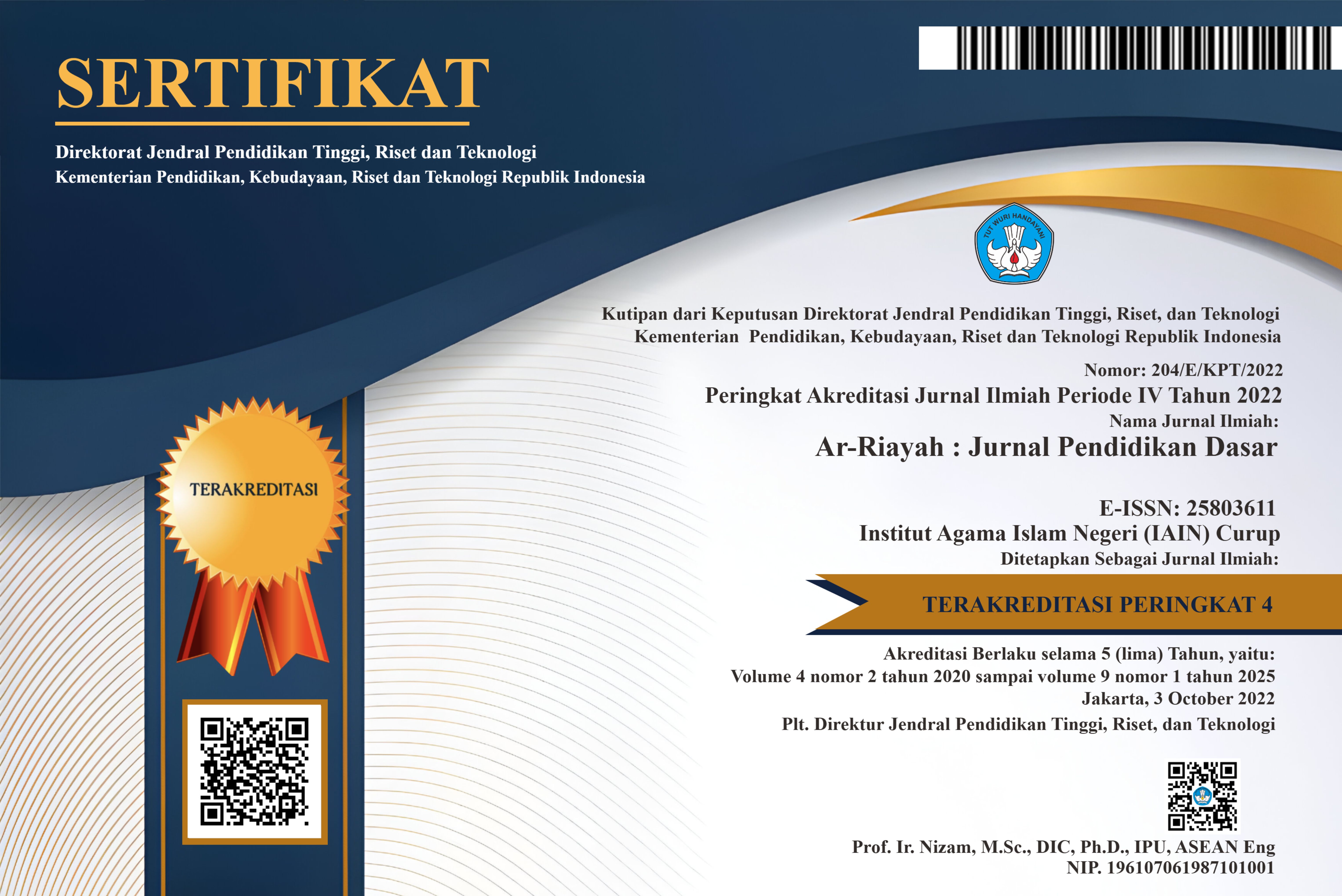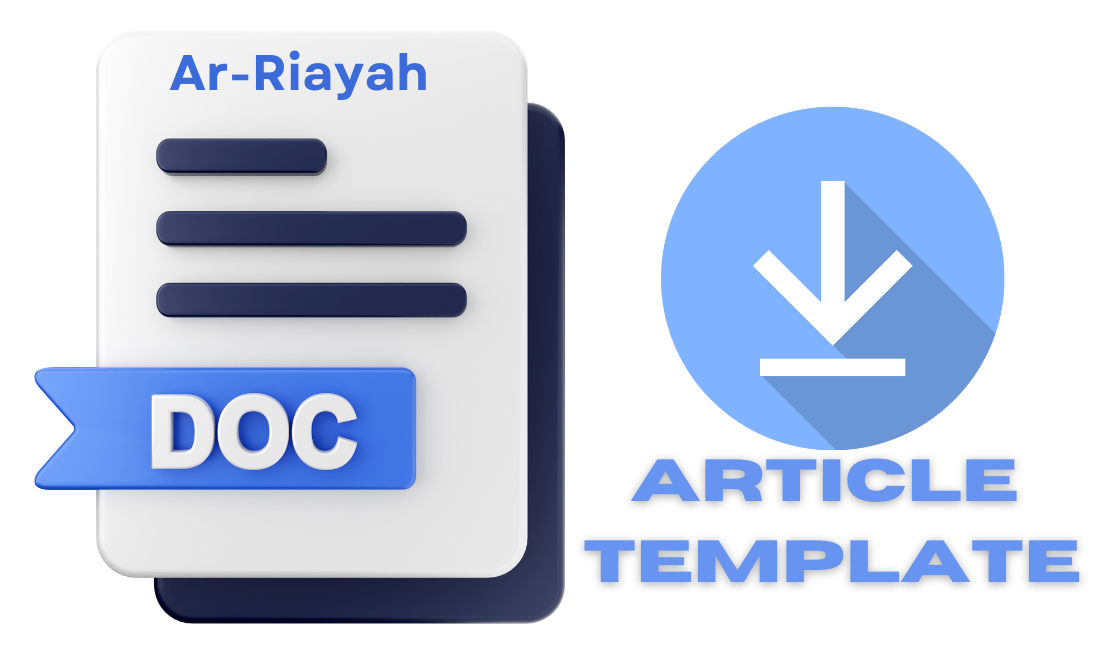Kurikulum dan Pendidikan: Kajian Konseptual Pembelajaran Science di Madrasah Ibtidaiyah Indonesia dan Sekolah Dasar Negara Maju
DOI:
https://doi.org/10.29240/jpd.v7i2.8674Keywords:
IPAS, Merdeka Curriculum, ScienceAbstract
Curriculum is the soul of education, to develop it as an effort for improvement and progress is a must and necessity for all educational institutions in Indonesia, especially those in Madrasah Ibtidaiyah (Islamic basic school). This research aims to examine the implementation of learning curriculum in Indonesia and in several developed countries which become a reference of innovation and answer to changes and challenges of the times. IPAS itself is an abbreviation of IPA (natural science) and IPS (social science) which is a new term designed by the government in the content of the current Merdeka Curriculum. In terms of content, IPAS is very close to nature and human interaction. Its learning needs to present a context that is relevant to the natural and environmental conditions around students. The research method used was a qualitative research method with a library research approach. Students’ need based learning is one of the author's findings in investigating science (IPAS) learning in the Merdeka Curriculum. Apart from that, today's digital era is an extraordinary challenge for an educator to be able to explore fun learning
Downloads
References
ABC News, (2020), Why Finland's schools outperform most others across the developed world | 7.30. https://youtu.be/7xCe2m0kiSg?si=PmHhFnlhauyKBr6Z
Education in Korea. 2020. Publishing Institution _ Ministry of Education: Republic of Korea
http://koreaneducentreinuk.org/en/education-in-korea/
https://asiasociety.org/education/south-korean-education
https://www.oph.fi/en/education-and-qualifications/national-core-curriculum-basic-education
Im, S., Yoon, H. G., & Cha, J. (2016). Pre-service science teacher education system in South Korea: Prospects and challenges. EURASIA Journal of Mathematics, Science and Technology Education, 12(7), 1863-1880
Mulyana, I., & Faizah, N. 2022. Studi dan komparasi kurikulum lintas negara. Inovasi kurikulum
Muryanti, E., & Herman, Y. (2021). Studi Perbandingan Sistem Pendidikan Dasar di Indonesia dan Finlandia. Jurnal Obsesi: Jurnal Pendidikan Anak Usia Dini, 6(3)
Muryanti, E., & Herman, Y. 2021. Studi Perbandingan Sistem Pendidikan Dasar di Indonesia dan Finlandia. Jurnal Obsesi: Jurnal Pendidikan Anak Usia Dini, 6(3)
Putra, A. 2017. Mengkaji dan Membandingkan Kurikulum 7 Negara (Malaysia, Singapura, Cina, Korea, Jepang, Amerika dan Finlandia)
Royani, A. 2018. Telaah Kurikulum dan Sistem Pembelajaran Sekolah Dasar di Finlandia Serta Persamaan Dan Perbedaannya Dengan Kurikulum 2013 Di Indonesia. In Prosiding Seminar Dan Diskusi Pendidikan Dasar.
Sugiyono. 2019. Metode Penelitian Pendidikan. Pendekatan Kuantitatif, Kualitatif, dan R&D. Bandung: Alfabeta
Syuhendri. 2012. “Pengelolaan Sekolah untuk Mengembangkan Sumber Daya Manusia dan Implementasinya pada Pembelajaran IPA SD: Suatu Refleksi Hasil Short Course di New Zealandâ€. Makalah. Disajikan dalam Seminar Nasional Diseminasi Hasil Pelatihan Luar Negeri Bidang Pengetahuan Dasar Program BERMUTU, Bali, 6-8 Juni.
Vieira, R. M., & Tenreiro-Vieira, C. (2016). Fostering scientific literacy and critical thinking in elementary science education. International Journal of science and mathematics education, 14
Wijayanti, I., & Ekantini, A. 2023. Implementasi Kurikulum Merdeka pada Pembelajaran IPAS MI/SD. Pendas: Jurnal Ilmiah Pendidikan Dasar
Downloads
Published
How to Cite
Issue
Section
Citation Check
License
Authors who publish with Ar-Riayah: Jurnal Pendidikan Dasar agree to the following terms:
Authors retain copyright and grant the journal right of first publication with the work simultaneously licensed under a Creative Commons Attribution-NonCommercial-ShareAlike 4.0 International License (CC BY-NC-SA 4.0) that allows others to share the work with an acknowledgment of the work's authorship and initial publication in this journal.
Authors are able to enter into separate, additional contractual arrangements for the non-exclusive distribution of the journal's published version of the work (e.g., post it to an institutional repository or publish it in a book), with an acknowledgment of its initial publication in this journal.
- Authors are permitted and encouraged to post their work online (e.g., in institutional repositories or on their website) prior to and during the submission process, as it can lead to productive exchanges, as well as earlier and greater citation of published work (See The Effect of Open Access).










